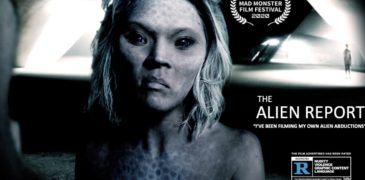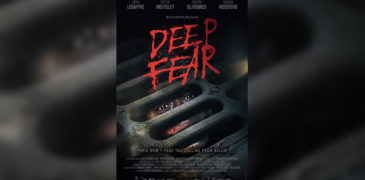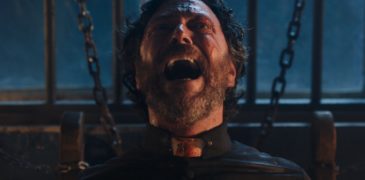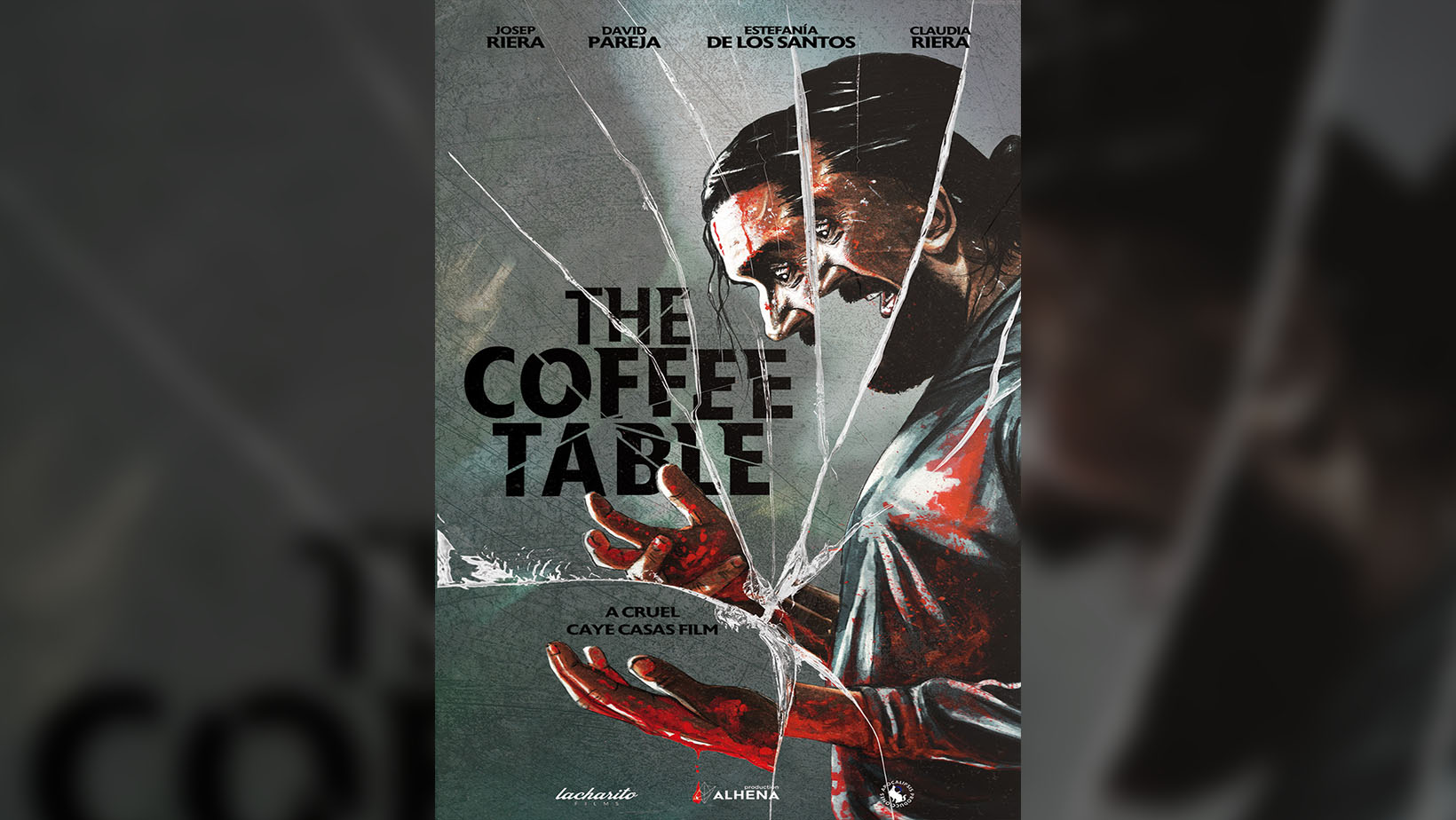
The Coffee Table, from the mind of emerging international director Caye Casas, stands out as a genuinely unnerving and intellectually stimulating horror film in recent memory. Serving as a cautionary tale, it sheds light on the perilous consequences of misguided parenthood, urging us to reconsider the gravity of this profound life decision and the horrors that ensue when it’s not approached with careful consideration. The film masterfully explores the dark and visceral realm of familial dynamics, emphasizing how unexamined relationships within a family can spiral into a destructive force, ultimately leading to the demise of all involved.
David Pareja’s apt portrayal of Jesus and Estefania de los Santos’ talented depiction of Maria breathes realistic life into the familial premise of the film. The couple, recently blessed with a newborn, undergoes a significant life change by moving into a new home and embracing parenthood. However, an ill-fated purchase—a flashy coffee table for their new apartment—sets off a harrowing chain of events, plunging them into a relentless spiral of demise and unrelenting turmoil.
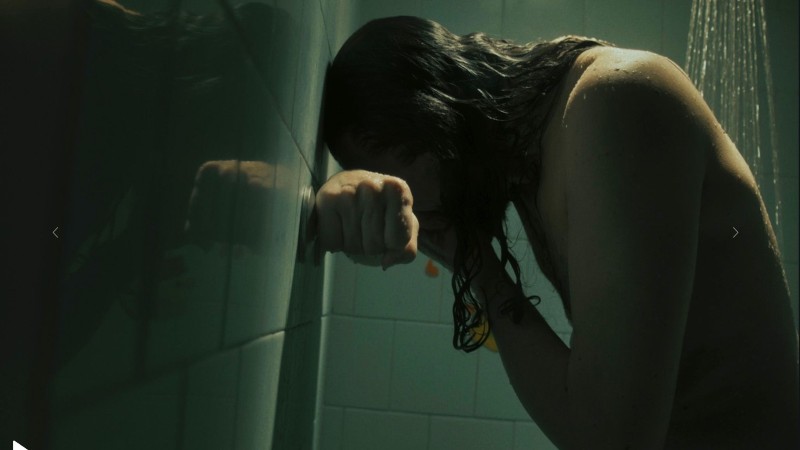
This psychological horror-drama transcends mere tension-building as it excels in multiple dimensions. The script is laced with wit, featuring comic comebacks and subtly convincing dialogues that enhance the tension while offering moments of relief. In addition to the compelling narrative and stellar acting, the cinematography deserves applause. The precision in camera work, utilizing frames to tell a subliminal story, enhances the viewing experience and adds an intriguing layer to the film. The choice of camera shots takes the audience on a wild ride, immersing them deeply into the storyline and some imagery that adds to the unsettling nature of the premise.
However, at its core, the narrative subtly unveils the detrimental impact of unchecked ego. The film masterfully highlights the pursuit of happiness, often intertwined with the desire to gratify one’s ego, as a central motivating factor. It vividly illustrates the seeming thrills that stem from making personal choices and the genuine sincerity associated with the journey of parenthood. Even the involvement of neighbors accentuates this pursuit, encouraging the idea of adding another family member right after the first newborn to enhance their “parental” sense of fulfillment.
Jose and Marie grapple with the irresistible temptation of ego gratification, using it as a shield to avoid confronting their fundamental responsibilities. Jose’s yearning to be distracted, or in the film’s case, buying a gaudy coffee table, stems from a genuine fear of inadequacy in the face of the impending responsibilities of raising a child. Conversely, Marie’s eagerness to embrace motherhood persists despite Jose’s apparent unpreparedness for the demands of parenthood. Tragically, their inability to reach a mutual compromise results in emotional suppression, exacerbating the growing chasm between them.
Their unyielding pursuit of self-validation clouds their judgment, preventing them from recognizing the impending consequences of their actions. The inability to confront their own limitations, fears, and insecurities ultimately propels them toward a disastrous climax, underscoring the devastating effects of unchecked ego and a lack of genuine communication within a relationship.
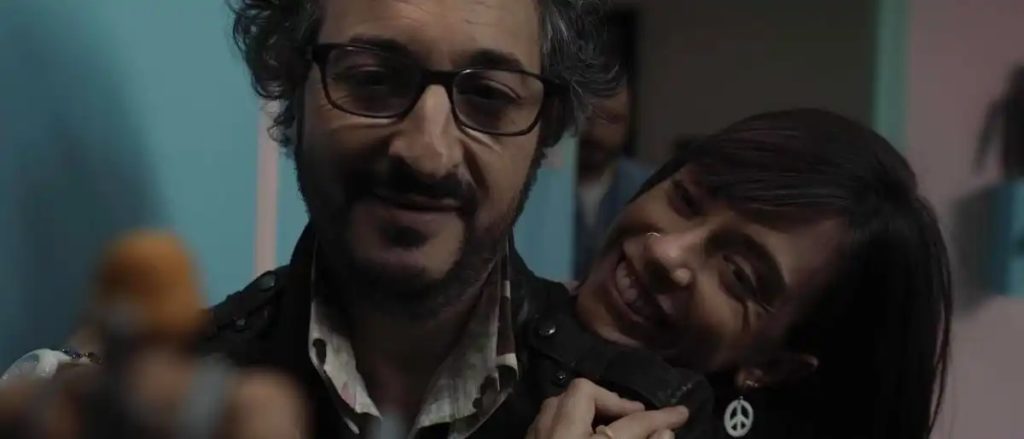
The divergence in their pursuits ultimately seals their fate, unraveling a tale where pride begets tragic outcomes. The birth of both the coffee table and the child reflects their arrogance, and they are left grappling with the fallout of their inability to find a middle ground and compromise. Tragically, by the time they truly embrace each other’s perspectives, it is an irreversible turning point.
This film distinguishes itself as a meticulously paced horror experience, allowing the audience to truly marinate in its hysteria. The deliberate pacing serves as a conduit for psychological warfare, effectively entwining the characters and the audience in a chilling emotional tug-of-war. The toll it exacts on our emotional capacity is profound, compelling us to grapple with the duration it takes for both the characters and ourselves to endure the escalating tension.
The tension within the film transcends the confines of the characters’ relationships, extending to external issues that continue to exacerbate as time elapses. The household transforms into a pressure cooker of simmering crises, teetering on the edge of eruption. Each issue, no matter how minuscule, serves as a catalyst for the impending detonation, illustrating the fragility of their situation.
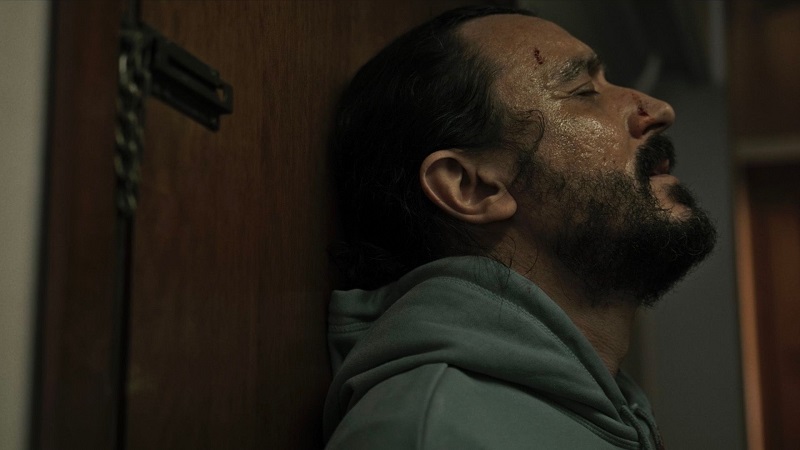
Remarkably, the film navigates this delicate interplay by ingeniously utilizing instances of levity, injecting humor into the midst of escalating conflicts. This juxtaposition of comedic relief within the overarching tension showcases the filmmakers’ adeptness at finely tuning the narrative’s emotional tempo. Such a skillful approach to tension-building leaves a palpable and exhilarating ache in our heads, eagerly anticipating the characters’ reactions as the story unfurls its surprises.
Tragedy in horror films can occasionally become overly desensitizing and predictable. However, amidst this, you may stumble upon a hidden gem within the tragedy of The Coffee Table. Whether you perceive the film as a cautionary tale, urging you to steer clear of such grim fates or revel in the creeping danger of an impending tragedy, The Coffee Table promises an engaging experience. It will not only entertain but also elevate your expectations when it comes to consuming horror films.
We watched The Coffee Table (2022) at Fantastic Fest 2023. The film will be arriving at cinemas on April 19th and on VOD May 14th
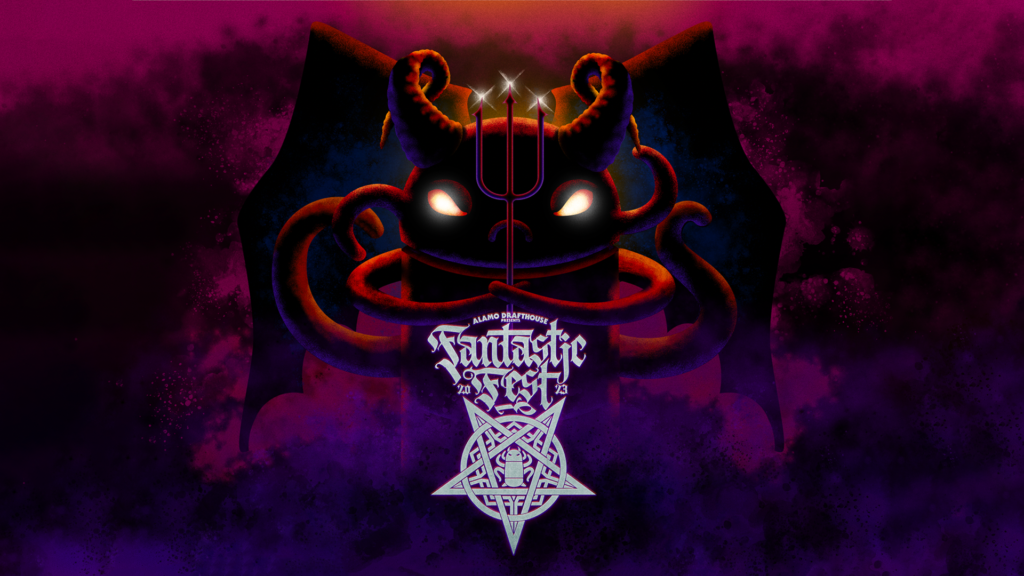
More Film festival Coverage
Nias (2024) Film Review – Let’s Waste Time, Chasing Cats! [Unnamed Footage Festival 7]
If you think you have seen all the found footage films out there, you are wrong. Sometimes, these films can get quite monotonous due to the repetitive use of cameras….
Hotspring Sharkattack (2024) Film Review – We’re Going to Need a Bigger Onsen! [Nippon Connection 2025]
Hotspring Sharkattack (also known as Onsen shâku) is a 2024 Japanese action comedy film written and directed by Morihito Inoue in his feature debut. There have been cases of mysterious…
Every Short Film From The AXWFF 2021 Alumni Showcase Reviewed
The Ax Wound Film Festival is a horror fest featuring works by female and non-binary filmmakers. In December 2021, with the help of the Future Of Film Is Female initiative,…
The Alien Report (2022) Film Review – Close Encounters Done Well
“We are the children. It’s a pleasure to receive you.” Remember how we always question why alleged alien abductees live to tell the story but don’t have the evidence to…
Deep Fear (2022) Film Review – I Did “Nazi” That Coming
Deep Fear is a 2022 French horror, directed by Grégory Beghin, who has made a name for himself as a TV actor, Grégory made his debut behind the camera with the 2020 comedy Losers…
The Exorcism of God (2021) Film Review – Tough Questions Require an Exorcist
The exorcism subgenre can be a bit of a double-edged sword. It’s so easy to rely on cheap makeup effects and jump scares to quickly turn a profit, which is…
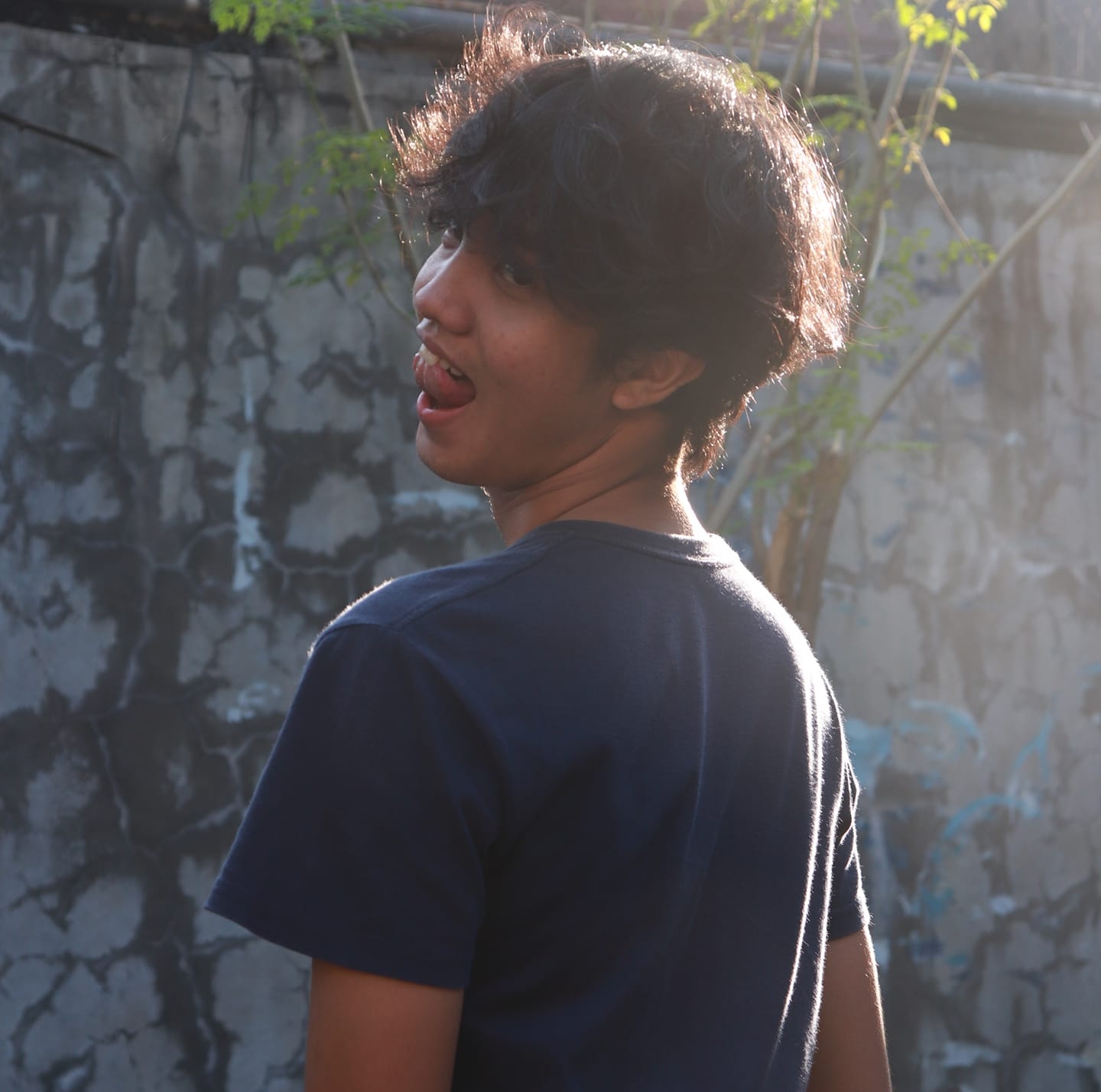
I am a 4th year Journalism student from the Polytechnic University of the Philipines and an aspiring Filmmaker. I fancy found footage, home invasions, and gore films. Randomly unearthing good films is my third favorite thing in life. The second and first are suspending disbelief and dozing off.
![Nias (2024) Film Review – Let’s Waste Time, Chasing Cats! [Unnamed Footage Festival 7]](https://www.grimoireofhorror.com/wp-content/uploads/2024/03/Nias-2024-ccover-365x180.jpg)
![Hotspring Sharkattack (2024) Film Review – We’re Going to Need a Bigger Onsen! [Nippon Connection 2025]](https://www.grimoireofhorror.com/wp-content/uploads/2025/05/Hotspring-Sharkattack-cover-365x180.jpg)

